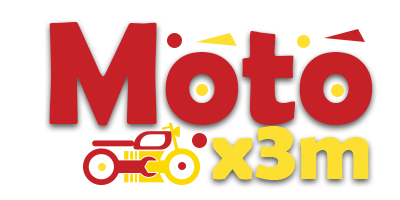If you’ve been dreaming about bizop entrepreneurship, you’re probably asking yourself a big question:
Should I buy a small business — or start one from scratch?
Both paths can lead to success.
Both offer the chance to be your own boss, build wealth, and live life on your terms.
But they’re also very different journeys, with different risks, rewards, and realities.
Before you make your move, let’s walk through the pros and cons of each option — so you can choose the path that’s right for you.
Buying a Small Business: The Pros
1. Immediate Cash Flow
When you buy a small business, you skip the “waiting game” most startups face.
You step into a business that already has:
- Customers
- Revenue
- Staff
- Operational systems
From day one, you can start earning — and building momentum — instead of wondering if or when you’ll break even.
2. Proven Business Model
One of the biggest risks in starting a business is not knowing if your idea will work.
When you buy an existing business, you’re buying a proven model.
You can review real-world financials, customer lists, brand reputation, and growth trends — not just guess or hope.
3. Easier to Finance
Banks and investors are much more comfortable financing the purchase of an existing small business than funding an unproven startup.
A business with predictable cash flow, solid financials, and tangible assets is seen as a safer investment — giving you access to better financing terms.
4. Built-In Brand and Reputation
Building a brand from scratch takes years.
When you buy a small business, you often get:
- An established name in the market
- Loyal customers
- Good vendor relationships
- Online reviews and word-of-mouth credibility
This gives you a huge head start — and can save you thousands in marketing costs.
Buying a Small Business: The Cons
1. Higher Upfront Costs
Buying a good small business usually costs more upfront than launching a brand-new startup.
You’re paying for the goodwill, brand value, customer base, and systems the previous owner built.
2. Inheriting Hidden Problems
Even with thorough due diligence, you may discover challenges after the sale:
- Outdated processes
- Staff turnover
- Hidden debts
- Reputational issues
You need to be prepared to fix what’s broken — not just enjoy what’s working.
3. Limited Flexibility (At First)
You may inherit ways of doing business that you don’t love — but that customers and employees expect.
Radical changes too fast can cause disruption.
You’ll need to balance respecting the business’s history with modernizing it carefully over time.
Starting a Small Business from Scratch: The Pros
1. Full Creative Control
When you start a small business, it’s your vision from day one.
You choose:
- The brand name
- The business model
- The target customers
- The pricing and marketing strategy
You don’t have to fix someone else’s mistakes — you build your own path.
2. Lower Initial Investment (Sometimes)
Depending on the business type, starting from scratch can cost less upfront.
Especially with digital businesses, consulting, coaching, or small service models, you can launch lean and grow over time.
3. Personal Satisfaction
There’s something deeply rewarding about creating something brand new.
You get to see your ideas take shape, evolve, and grow.
Every milestone feels like a huge victory — because you built it with your own hands.
Starting a Small Business: The Cons
1. High Risk and Failure Rates
According to the U.S. Bureau of Labor Statistics, about 20% of new businesses fail within the first year, and about 50% fail within five years.
You’re starting without proof that customers want what you’re selling — and survival in the early months can be tough.
2. No Immediate Cash Flow
Expect a slow start.
Building brand awareness, earning customer trust, and generating steady revenue takes time — sometimes years.
Be prepared to live without a paycheck for a while and invest heavily in marketing early on.
3. Tougher to Get Financing
Banks and investors view startups as high-risk.
Without steady cash flow or assets, it’s harder to get loans — and when you do, interest rates may be higher.
You might have to bootstrap your business or seek creative funding (like friends, family, or crowdfunding).
How to Choose Key Questions to Ask Yourself
Still not sure whether to buy a small business or start one?
Ask yourself these questions:
✅ Do I have the patience for a slow build — or do I need immediate cash flow?
✅ Am I more excited to create something new — or grow and improve something proven?
✅ How much risk am I comfortable taking?
✅ Do I have enough capital to buy a good business — or would it make more sense to launch lean?
✅ Am I good at fixing problems — or do I prefer building cleanly from scratch?
There’s no one-size-fits-all answer.
It’s about your goals, your skills, your risk tolerance, and your resources.
Final Thoughts
Both paths — buying a small business and starting one — can lead to incredible success.
It’s all about choosing the right journey for you.
- If you want speed, structure, and stability, buying a small business might be your best bet.
- If you crave creativity, flexibility, and the thrill of building something from the ground up, starting your own business might be your calling.
Either way, the entrepreneurial life is waiting — full of challenges, rewards, and possibilities. 🚀
Choose your path wisely — and then run toward your dreams with everything you’ve got.

